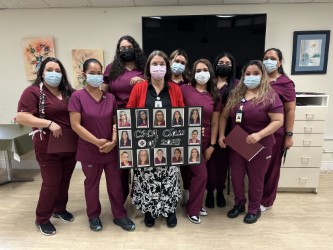Keep Safe While Eating at Fairs and Festivals
- Category: Health & Wellness
- Posted On:
- Written By: Lompoc Valley Medical Center

The arrival of summer brings not only the end of the school year but the start of the festival and fair season.
Seemingly every weekend, a different event is attracting visitors to try thrilling rides and eat a variety of gooey, high-calorie, tasty treats.
But as you get ready to try the fair food, it’s good to be aware that sometimes the usual safety controls in a kitchen, such as hand-washing facilities, refrigeration, thermometers to check food temperatures and workers trained in food safety, may not be available when cooking and dining at fairs and festivals.
For those reasons, the Centers for Disease Control is stressing the importance of following food safety tips. The CDC urges you to remember that to avoid the chances of food poisoning, food safety practices should be the same at fairs as they are in your own home or in certified restaurants — clean, separate, cook and chill.
Here are some helpful hints from the CDC about what to consider before buying food from a vendor:
- Does the vendor have a clean/tidy workstation?
- Does the vendor have a sink for employees to wash their hands?
- Do the employees wear gloves or use tongs when handling food?
- Does the vendor have refrigeration on site for raw ingredients or pre-cooked foods?
- Has the vendor been inspected? Is a recent inspection report available?
In general, temporary and mobile vendors, such as those at fairs and carnivals, should have a license to sell food and beverages for a specific time period, in the state or county in which items are being sold, according to the CDC.
It’s particularly important for food safety reasons that certain food, including meat, poultry, and fish be cooked at high enough temperatures to kill harmful germs.
You may try something different at the carnival or fair and take a look to see whether there are healthy food alternatives to consider, despite how tasty the deep-fried Twinkies may look. If healthy options are not available, you may even consider whether you can bring your own food from home — as long as you remember to keep cold foods cold and hot foods hot.
There are other steps the CDC suggests you take to protect yourself and family from possible illness while at a fair or festival:
- Wash your hands often, with soap and water for at least 20 seconds.
- Always wash your hands after using the restroom, playing a game or going on a ride, changing diapers or removing soiled clothes or shoes.
- Bring hand sanitizers or disposable wipes
If you do unfortunately contract a food-borne illness, it’s important to report it to your local health department, to help them detect possible outbreaks.
Information from healthy people can be just as important as information from sick people in public health investigations, according to the CDC. Investigators may need your help even if you are not sick.
Food vendors, community organizations, and fair requirements differ by state, but in general temporary and mobile food vendors should apply for a food license with the fair’s state or county health department. Many community-based organizations set up booths to sell various foods at local festivals and fairs too, such as at Lompoc annual Flower Festival.
It is important that food safety steps are followed so the food served doesn’t make anyone sick. Try to limit the amount of food preparation performed off-site, a practice known as cook-serve. It’s important for vendors and certainly volunteers at local booths, to follow four basic food safety tips suggested by the CDC: Clean, Separate, Cook and Chill.






